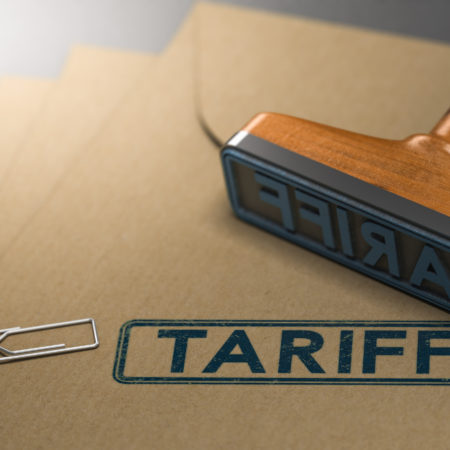Besting Regulations & Tariffs with Transparency

While much of the logistics news we’re hearing is tied to the ocean rate and capacity situation, it would be remiss of us to ignore discussing the tariffs and regulatory updates that have come out which may impact many of our clients. Whether it’s the reinstatement of US trade programs like GSP and the Miscellaneous Tariff Bill or the FSVP portal opening to allow importers to submit electronic records in a dedicated and streamlined manner, these updates are critical to properly handling your cargo.
Senator and Finance Committee Chairman, Ron Wyden (D-Ore.) released legislation in May to revive the GSP until 2027 and reinstate the Miscellaneous Tariff Bill that allows a temporary reduction or suspension of tariffs on goods that cannot be readily found in the United States. His legislation, The Trade Preferences and American Manufacturing Competitiveness Act would retroactively cover the expiration period and would reauthorize the American Manufacturing Competitiveness Act for two cycles starting in 2022 and 2025.
US Trade Representative Katherine Tai recently announced that there would be 25% tariffs on $2 billion worth of goods imported from six countries in response to their digital services taxes but the tariffs are being frozen for six months after a Section 301 investigation ruled discrimination against the US from Turkey, India, Italy, Austria, Spain, and Britain. Taxes already set against France for digital services tax discrimination were frozen when placed in January. The freeze will provide time for the parties to work toward a palatable solution for all involved.
If you want to reach out to your congressperson to discuss this legislation you can find them here.
The Bestway to avoid compliance-related cargo issues is to be transparent with your forwarder. We can’t manage problems or complications of which we’re unaware and your communication is our best weapon against fines and delays. Your Bestway provider is always on hand to provide guidance and advocacy regarding new and updated legislation and regulations. Find out how we can work with the cargo options you have and keep your cargo moving.
Glossary
GSP
The Generalized System of Preferences is a US trade program that provides opportunities for the world’s poorest countries to use trade to grow their economies and rise out of poverty. The largest and oldest of US trade preference programs, GSP was established by the Trade Act of 1974 to promote economic development by eliminating duties on the products imported from one of the designated beneficiary counties and territories.
MTB
Miscellaneous Tariff Bills enact the temporary reduction or suspension of duties on certain US importers. When companies are seeking duty reductions or suspension, they must submit a petition to the US International Trade Commission (USITC) who will compile and review the petitions and submit a report to the Ways and Means Committee to implement the petitioned reductions that were approved.
FSVP
The Foreign Supplier Verification Program For Food Importers (FSVP) is a requirement established by the Food Safety Modernization Act (FSMA). It states that importers are to perform certain risk-based activities to verify that their foreign suppliers are producing food in accordance with US food safety standards.
